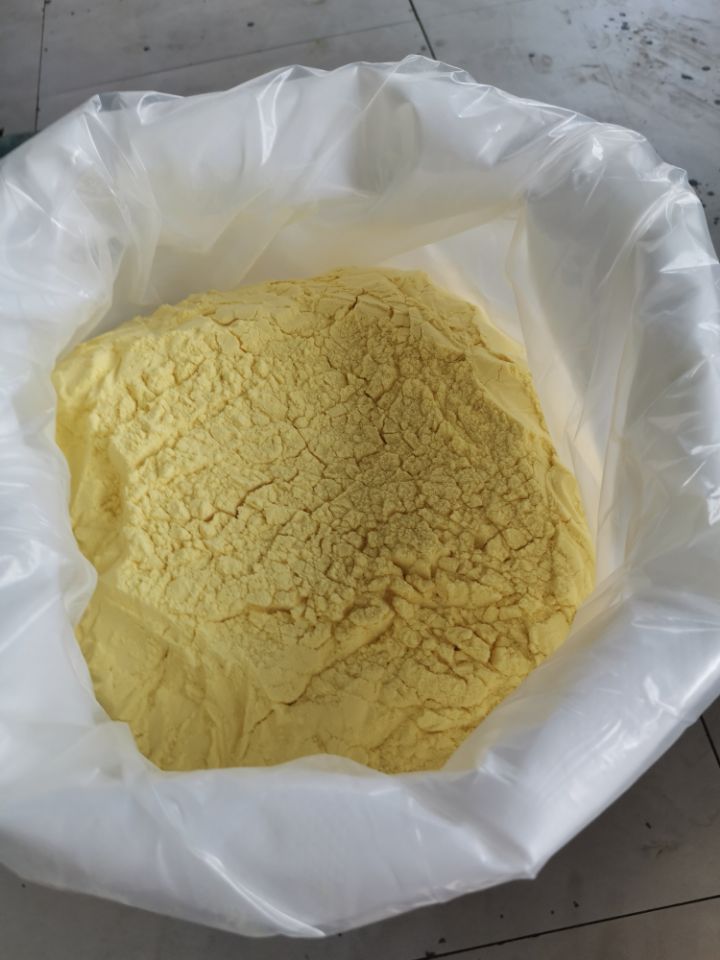Poly Aluminium Chloride Light Yellow for drinking
Chemical Name: Poly Aluminium Chloride
MFC:Al2(OH)LnCl 6—Nm
CAS NO: 1327—41-9
HS CODE: 3824909900
|
AL2O3% |
29.5 |
|
SALTINESS |
72 |
|
g/cm3 |
0.77 |
|
WATER INSOLUBLES% |
0.03% |
|
PH(1% LIQUID) |
4.49 |
Package: 25kg/50kg/1000kg
Poly Aluminium Chloride (PAC) Yellow is a water-soluble inorganic polymer used in the treatment of drinking water, wastewater, and industrial effluents. It is a yellow-colored product obtained by the reaction of aluminum hydroxide with hydrochloric acid. PAC Yellow is a more potent and efficient coagulant than traditional coagulants such as alum.
PAC Yellow is widely used in the water treatment industry due to its ability to remove suspended and colloidal solids, turbidity, and color. It also has a high efficiency in removing organic matter, bacteria, and other microorganisms from water.
Besides water treatment, PAC Yellow is also used in the paper industry, textiles, dyes, foods, and pharmaceuticals. It is considered safe for human consumption and does not have any harmful effects on the environment.
Overall, PAC Yellow is a reliable and effective coagulant in various industrial applications, and its use is growing globally.
In today's world, ensuring the safety and quality of chemicals used in
various industries is paramount. Sodium chlorite, a chemical compound
with diverse applications ranging from water treatment to food
processing, exemplifies this need for stringent standards. The NSF
certification plays a pivotal role in guaranteeing the reliability and
safety of sodium chlorite in its myriad applications.
NSF International, a renowned independent organization dedicated to
developing standards and certifying products in the realm of public
health and safety, offers certification programs for various chemicals,
including sodium chlorite. This certification signifies that the sodium
chlorite product has undergone rigorous testing and evaluation to ensure
its compliance with NSF/ANSI standards.
The NSF certification for sodium chlorite serves several crucial purposes across different industries:
1. **Water Treatment**: Sodium chlorite is commonly used as a
disinfectant and oxidizing agent in water treatment processes. The NSF
certification assures water treatment facilities, municipalities, and
consumers that the sodium chlorite product meets strict standards for
purity, safety, and efficacy. It validates its suitability for use in
applications such as potable water treatment, wastewater treatment, and
cooling tower water treatment.
2. **Food Processing**: In the food industry, sodium chlorite is
utilized as a disinfectant and antimicrobial agent for sanitizing food
processing equipment and surfaces, as well as for controlling microbial
growth in food products. NSF certification ensures that sodium chlorite
used in food processing adheres to regulations and standards set forth
by regulatory bodies like the FDA. This certification is vital for
maintaining food safety and preventing contamination, thereby
safeguarding public health.
3. **Industrial Applications**: Beyond water treatment and food
processing, sodium chlorite finds applications in various industrial
processes, including pulp and paper production, textile bleaching, and
chemical synthesis. The NSF certification provides assurance to
industrial users that the sodium chlorite product meets stringent
quality and safety criteria, promoting operational efficiency and
compliance with regulatory requirements.
4. **Consumer Confidence**: NSF certification enhances consumer
confidence in products containing sodium chlorite, such as household
cleaners, mouthwashes, and personal care products. Consumers can trust
that products bearing the NSF certification have undergone thorough
testing and meet high standards for safety and performance.
In conclusion, the NSF certification for sodium chlorite is
indispensable in ensuring the integrity, safety, and regulatory
compliance of this versatile chemical compound across various
industries. By choosing NSF-certified sodium chlorite products,
businesses and consumers alike can have confidence in the quality and
reliability of their applications, contributing to public health and
environmental sustainability.



